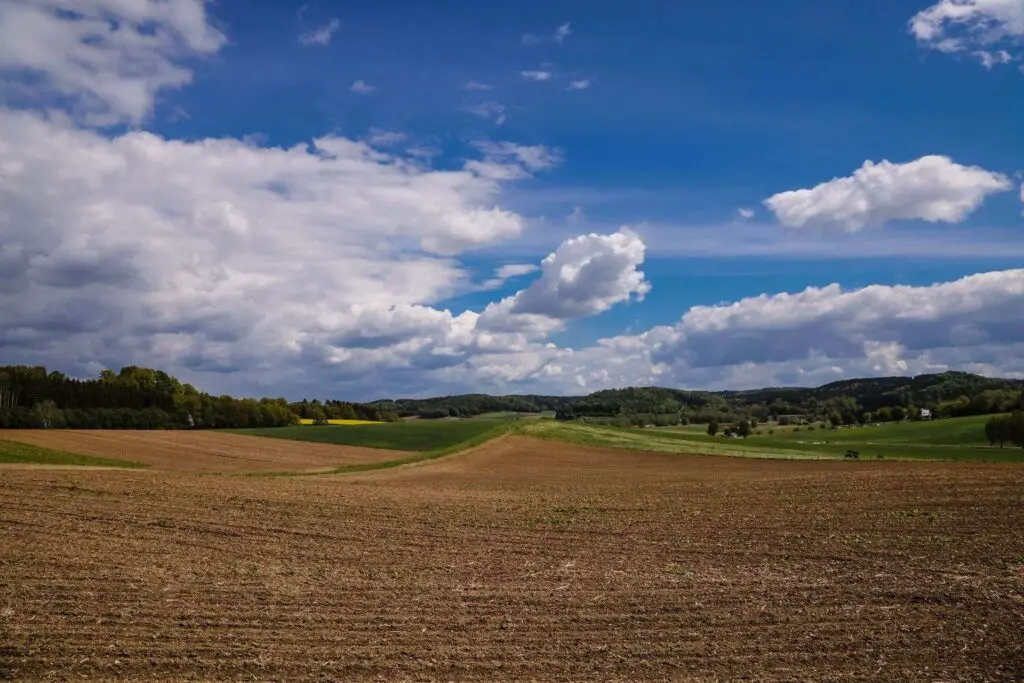Physical Address
304 North Cardinal St.
Dorchester Center, MA 02124
Physical Address
304 North Cardinal St.
Dorchester Center, MA 02124
When thinking about purchasing land, naturally, the first question that will pop your mind is whether you can mortgage land. In theory, all things can be mortgaged, but things are a little different in reality. How hard is it to get a loan for land? We will answer this and many more questions.
First, let’s answer the question: can you mortgage land? It is possible to mortgage land, though the terms of the mortgage will likely be more stringent than for other types of collateral. For example, a lender may require a higher down payment and a higher interest rate due to the increased risk of lending against land.

People still mortgage the land often, and the procedure is similar to when you mortgage the house. Here is how you can take a land loan.
Land mortgages or land loans are used to finance a land purchase. And like with house mortgage loans, you will ask for money from a lender (bank, credit union) so you can buy a particular land you are interested in.
If you are buying land so you can build a house or you wish to utilize the plot for business purposes, the type of a loan will be different, and the reasons you are buying a plot will be one of the things your lender will ask.
Land loans are not the same thing as construction loans. Construction loans are short-term loans that are given if you wish to start building on a plot right away. In comparison, land loans are a better option if you plan to build on land but not in the near future.
When it comes to land mortgages, you will get a different deal for a different type of land. Raw land is a plot that is undeveloped land with no sewers, electricity, or roads.
Also, this type of land can not be improved whatsoever. And even though these plots of land are usually cheaper, finding finances can be difficult. But if you make a solid financial plan for developing the land, you may get finances with a large down payment in place.
People usually ask another question when thinking about purchasing land: Can you mortgage vacant land? As a matter of fact, you can get funding for this type of land even easier.
Vacant land is an empty plot, but it has access to utilities or may already have improvements in place. This type of land is sometimes called unimproved land.
Unlike the raw and vacant land, improved land has access to things like roads, water, and electricity. This is the best type of land you can get.
The interest rates and down payment are lower than for loans for raw land or unimproved land. Still, you will have to have some down payment in mind as well as a good credit score.

For different types of plots, you will have to meet different criteria. However, you need to meet general rules and qualifications before applying for a mortgage.
For starters, you will have to prove you have an excellent credit score of over 720. Also, the bank will ask for other factors to determine how risky the property is, and once all factors are checked, you will get an interest rate, which will be higher than the house mortgage rates, and once you make a down payment, you will be approved for receiving the loan.
Here are the risk factors the lender will ask when doing an estimate.
Check this video for more information.
You are probably more familiar with rates when it comes to taking a mortgage for a house. And even though there are similarities between these two loans, there are differences, as well.
The main differences are in the amount of money you can get, the duration of the loan, and other factors. Take a look at the most important differences between land and home mortgage loans.
| Home loan | Land Loan | |
| Purpose | To buy or construct a building or to improve the existing one | To buy a land |
| Fixed obligations to income ratio | 90-95% | 60% |
| Loan to value ratio | Up to 80% | Between 50-70% |
| Duration of the loan | Up to 30 years | No more than 15 years |
| Foreclosure charges | There are no charges | 2-5% charge |
There are five types of land loans you can apply to. The loans will be different depending on the institution you are applying to. And as we mentioned earlier, the purpose of the land will have a huge impact on the type of loan you can apply for.
Here are the three most commonly used loans:

If you already have a home with large equity, you can get a home equity loan to purchase land. This will be much easier, and you will not need to leave any down payments, and you will get lower interest rates no matter what you plan to do with the land.
The other way you can get a land loan is through seller financing loans. Sometimes people or companies that are selling the land can offer you to buy land on short-term financing method. And since the seller is not a bank, it can give you higher rates and ask for a bigger down payment. Do this only if any other option is not available.
As you can see, land is another commodity that can be obtained through the mortgage. However, the same golden rules apply there as in any type of investing – conduct thorough research, find the lender offering the best conditions, and stay within the amounts you can reasonably repay.
Follow these, and your investments will not come back to haunt you.